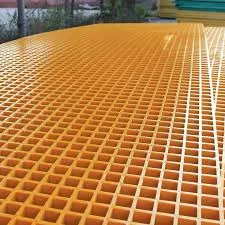
-
 Afrikaans
Afrikaans -
 Albanian
Albanian -
 Amharic
Amharic -
 Arabic
Arabic -
 Armenian
Armenian -
 Azerbaijani
Azerbaijani -
 Basque
Basque -
 Belarusian
Belarusian -
 Bengali
Bengali -
 Bosnian
Bosnian -
 Bulgarian
Bulgarian -
 Catalan
Catalan -
 Cebuano
Cebuano -
 China
China -
 China (Taiwan)
China (Taiwan) -
 Corsican
Corsican -
 Croatian
Croatian -
 Czech
Czech -
 Danish
Danish -
 Dutch
Dutch -
 English
English -
 Esperanto
Esperanto -
 Estonian
Estonian -
 Finnish
Finnish -
 French
French -
 Frisian
Frisian -
 Galician
Galician -
 Georgian
Georgian -
 German
German -
 Greek
Greek -
 Gujarati
Gujarati -
 Haitian Creole
Haitian Creole -
 hausa
hausa -
 hawaiian
hawaiian -
 Hebrew
Hebrew -
 Hindi
Hindi -
 Miao
Miao -
 Hungarian
Hungarian -
 Icelandic
Icelandic -
 igbo
igbo -
 Indonesian
Indonesian -
 irish
irish -
 Italian
Italian -
 Japanese
Japanese -
 Javanese
Javanese -
 Kannada
Kannada -
 kazakh
kazakh -
 Khmer
Khmer -
 Rwandese
Rwandese -
 Korean
Korean -
 Kurdish
Kurdish -
 Kyrgyz
Kyrgyz -
 Lao
Lao -
 Latin
Latin -
 Latvian
Latvian -
 Lithuanian
Lithuanian -
 Luxembourgish
Luxembourgish -
 Macedonian
Macedonian -
 Malgashi
Malgashi -
 Malay
Malay -
 Malayalam
Malayalam -
 Maltese
Maltese -
 Maori
Maori -
 Marathi
Marathi -
 Mongolian
Mongolian -
 Myanmar
Myanmar -
 Nepali
Nepali -
 Norwegian
Norwegian -
 Norwegian
Norwegian -
 Occitan
Occitan -
 Pashto
Pashto -
 Persian
Persian -
 Polish
Polish -
 Portuguese
Portuguese -
 Punjabi
Punjabi -
 Romanian
Romanian -
 Russian
Russian -
 Samoan
Samoan -
 Scottish Gaelic
Scottish Gaelic -
 Serbian
Serbian -
 Sesotho
Sesotho -
 Shona
Shona -
 Sindhi
Sindhi -
 Sinhala
Sinhala -
 Slovak
Slovak -
 Slovenian
Slovenian -
 Somali
Somali -
 Spanish
Spanish -
 Sundanese
Sundanese -
 Swahili
Swahili -
 Swedish
Swedish -
 Tagalog
Tagalog -
 Tajik
Tajik -
 Tamil
Tamil -
 Tatar
Tatar -
 Telugu
Telugu -
 Thai
Thai -
 Turkish
Turkish -
 Turkmen
Turkmen -
 Ukrainian
Ukrainian -
 Urdu
Urdu -
 Uighur
Uighur -
 Uzbek
Uzbek -
 Vietnamese
Vietnamese -
 Welsh
Welsh -
 Bantu
Bantu -
 Yiddish
Yiddish -
 Yoruba
Yoruba -
 Zulu
Zulu
FRP Rectangular Tank - Durable and Versatile Solutions
Understanding FRP Rectangular Tanks A Comprehensive Overview
Fiberglass Reinforced Polymer (FRP) rectangular tanks are becoming increasingly popular in various industries due to their versatility, durability, and resistance to corrosion. As industries evolve and the demand for efficient and reliable storage solutions rises, FRP tanks have emerged as a favorable choice.
What is FRP?
FRP stands for Fiberglass Reinforced Polymer, which is a composite material made from a polymer matrix reinforced with fibers, typically fiberglass. This combination results in a lightweight yet incredibly strong and durable material. FRP is known for its superior resistance to harsh weather conditions, chemicals, and extreme temperatures, making it ideal for various applications.
Benefits of FRP Rectangular Tanks
1. Corrosion Resistance One of the most significant advantages of FRP rectangular tanks is their resistance to corrosion. Unlike traditional materials like steel or concrete, FRP does not rust or corrode when exposed to moisture or corrosive substances. This property ensures a longer lifespan and reduced maintenance costs.
2. Lightweight FRP is much lighter than other materials, which simplifies handling and installation. This characteristic is particularly beneficial in applications where structural support may be limited, reducing the need for extensive reinforcement.
3. Customizability FRP rectangular tanks can be manufactured in various sizes and configurations to meet specific storage needs. This flexibility allows industries to optimize space and storage capacity effectively.
frp rectangular tank

4. Impact Resistance FRP’s composition grants it a higher impact resistance compared to materials like polyethylene or metal. This makes it suitable for environments where tanks may be subject to external forces or accidental collisions.
5. Thermal Insulation The design of FRP tanks provides excellent thermal insulation. This property is crucial in industries that require temperature-controlled environments, such as food and beverage processing, where maintaining the right conditions is essential for quality assurance.
Applications of FRP Rectangular Tanks
FRP rectangular tanks are extensively used in various sectors, including
- Water and Wastewater Treatment These tanks are ideal for storing chemicals and treating effluent due to their corrosion resistance. - Chemical Processing FRP tanks can safely hold a variety of chemicals without the risk of damage or contamination. - Agriculture They are used for fertilization purposes, as well as for storing water and other agricultural inputs. - Food and Beverage In this sector, hygiene and material safety are paramount, and FRP satisfies these requirements.
Conclusion
In summary, FRP rectangular tanks offer numerous advantages that make them an excellent choice for diverse applications across several industries. Their durability, corrosion resistance, and customizability cater to the specific needs of businesses, ensuring efficient and safe storage solutions. As technology advances and industry requirements evolve, FRP tanks are likely to play an even more prominent role in the future, solidifying their place as a preferred option for modern storage needs.
Latest news
-
Exploring the Benefits of Top Hammer Drifter Rods for Enhanced Drilling PerformanceNewsJun.10,2025
-
High-Precision Fiberglass Winding Machine for GRP/FRP Pipe Production – Reliable & Efficient SolutionsNewsJun.10,2025
-
FRP Pipes & Fittings for Shipbuilding - Corrosion-Resistant & LightweightNewsJun.09,2025
-
Premium FRP Flooring Solutions Durable & Slip-ResistantNewsJun.09,2025
-
Premium Fiberglass Rectangular Tanks Durable & Lightweight SolutionNewsJun.09,2025
-
Tapered Drill String Design Guide Durable Performance & UsesNewsJun.09,2025









